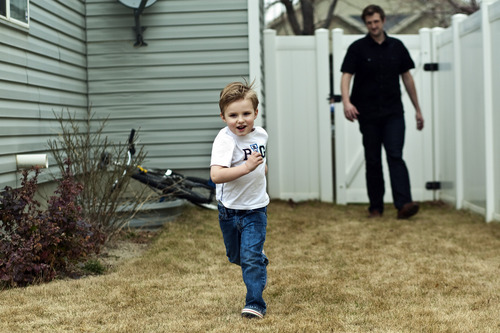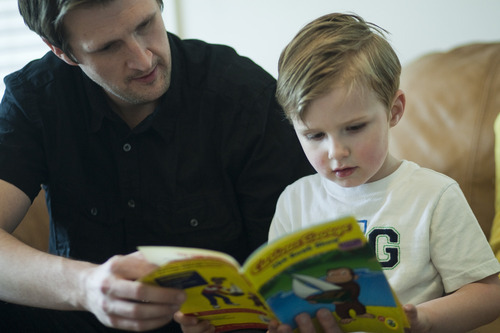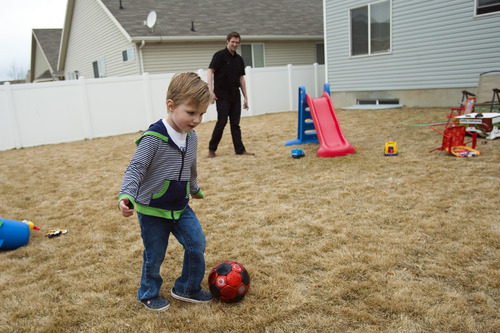This is an archived article that was published on sltrib.com in 2012, and information in the article may be outdated. It is provided only for personal research purposes and may not be reprinted.
Utah government and private businesses are set to launch a collaboration with the potential to transform the lives of hundreds of families with young autistic children.
The state will run a two-year pilot that will pay for therapy for about 350 children between the ages of 2 and 6. Insurance companies and at least one bank are expected to donate $1 million, which will be added to state dollars.
"Autism is not going away," said Rep. Ronda Menlove, R-Garland, who sponsored the bill to create the pilot. "We will know a lot more in two years about treating autism, what it costs and what the impacts are of therapy."
Utah is known for its growing rate of autistic children, though the causes remain unclear. About two Utah children per day were born with an autism spectrum disorder in 2008. That year, 1 in 77 8-year-olds in Utah had the disorder — twice the number from six years before.
As autism becomes more common in every community, awareness has grown — as shown by the number of elected officials who spoke during the Legislature about their first-hand experiences, including Lt. Gov. Greg Bell.
"In my family I've seen a beautiful child afflicted with some conditions on the autism spectrum," he said. "They are wrenching to deal with not just for the child but for his siblings, and treatment options are really, really slim. Given the prevalence in the state of Utah, we've got to find something to help people."
The pilot program will focus on three groups of children: up to 50 covered by the Public Employees' Benefit and Insurance Program, up to 100 who will receive help from the contributed fund bolstered with state dollars, and at least 200 kids covered by Medicaid, supported by $4.5 million in Medicaid dollars.
Children who benefit from the fund may have private insurance that does not cover autism treatment or may be uninsured. The mechanics of how children will be selected has yet to be determined. Several businesses declined to discuss the exact details of their planned contributions.
"We have an employee that has an [autistic] 4-year-old, and they're spending from $50,000 to $100,000 a year," said A. Scott Anderson, the president and chief executive officer of Zions First National Bank, one of the companies donating to the state fund. "For a young family, that becomes catastrophic."
A proposed mandate that insurers cover therapy, which was one of the prior versions of the program, would mean higher premiums, he said.
"If it's not a mandate but it's an issue that your employees need ... are you willing to put some of that [money] that would have been absorbed through the mandate, as a donation?" Anderson said.
Travis Wood, executive director of Utah Health Plans Association, agreed that the costs of a mandate would be passed on to customers, not absorbed in the insurance companies' bottom line.
"We think the pilot program will come up with a definable solution," he said.
But some parents — such as Nathan Johnson, whose 3-year-old son, Owen, has autism — feel insurance should be helping pay for autism treatment, as it already does for other diagnosable conditions, from depression to anxiety.
"We're on track to be one of the last states to realize insurance should pay for this," said Johnson, whose son receives state funding to attend the Carmen B. Pingree Center for Children with Autism.
Pingree has helped transform Owen, who at age 2 said no words and would not make eye contact. Now, a few months away from his fourth birthday, he makes eye contact and "speaks constantly," though he does not form sentences in a typical way, Johnson said.
The limited pilot seems somewhat redundant to the Draper father, who has seen the proof that treatment works. "We're spending time to find out something we already know," he said. "If I could have anything I wanted it would be to duplicate Pingree a few more times throughout the state."
Do you want to apply to receive therapy for your child?
More information will be available on the Utah Department of Health website health.utah.gov in the coming weeks.











